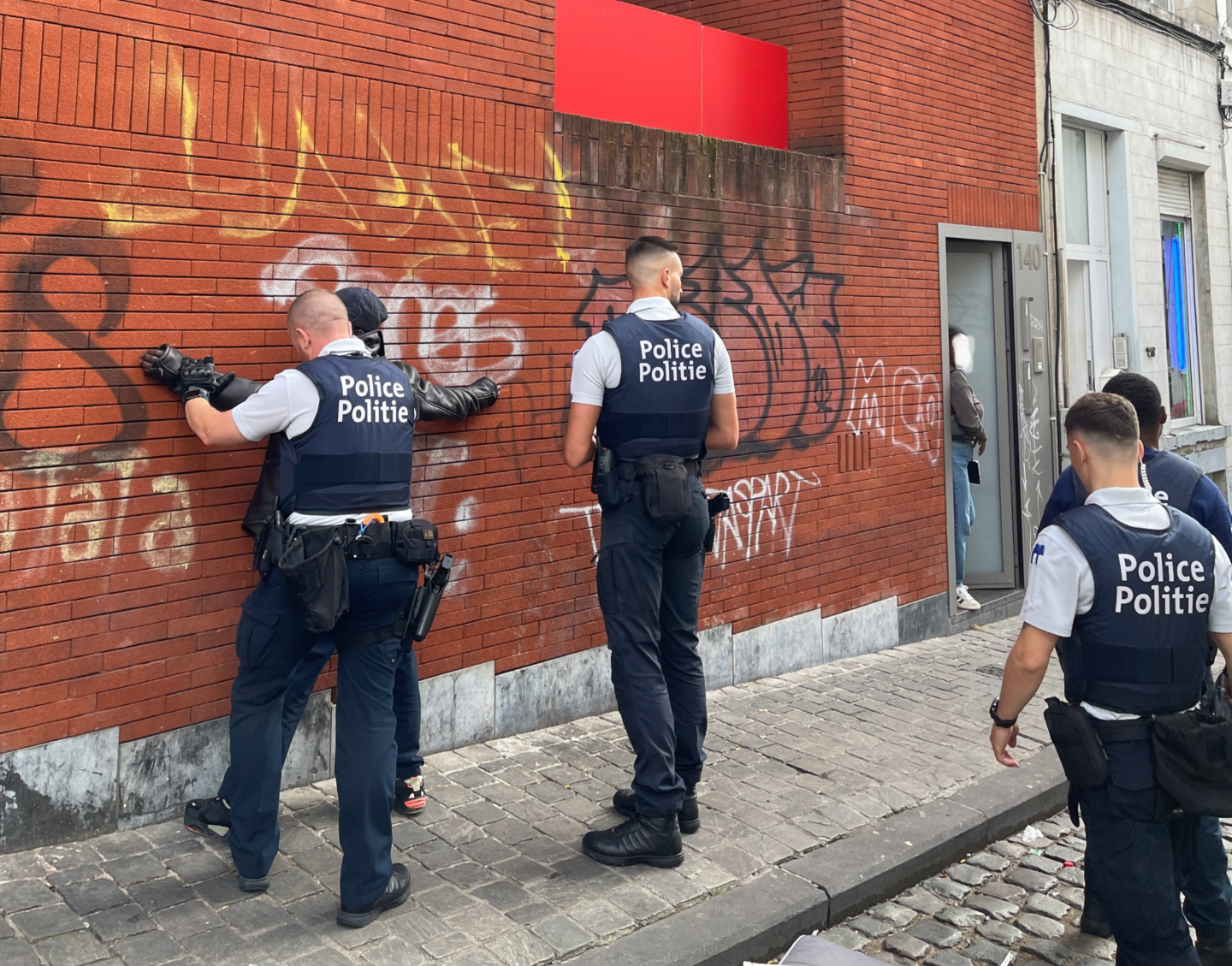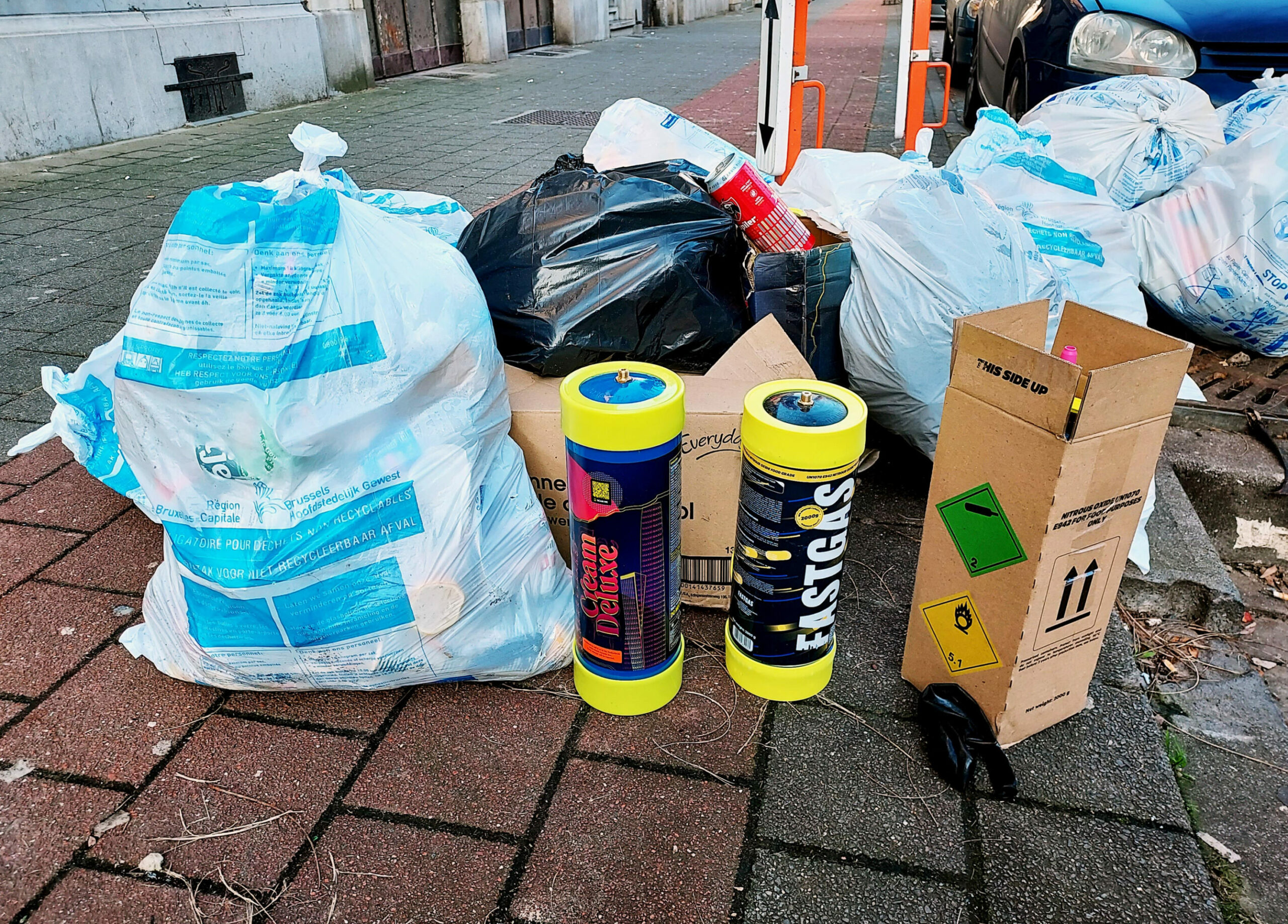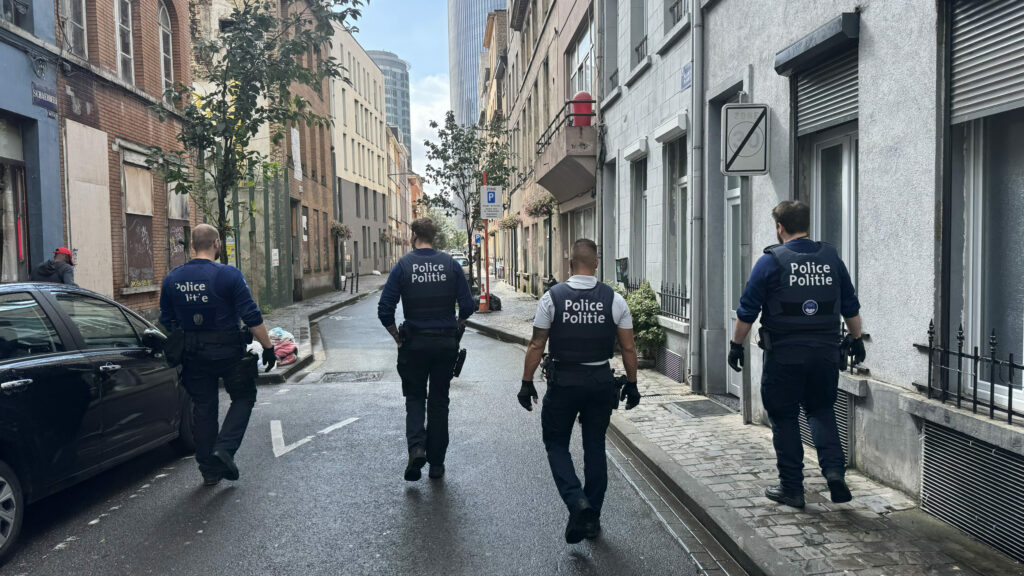Brussels North police have made over 700 arrests over the past two months, as part of a series of co-ordinated actions in the Northern District focusing on drug dealing, pickpocketing and illegal behaviour by business owners.
The Brussels North Police Zone, which consists of Schaerbeek, Evere and Saint-Josse-ten-Noode, carries out regular operations in the city's Northern District to "reduce the number of criminal acts in the area and improve the feeling of safety of local residents and users."
Over the past two months (between 15 August and 15 October), a series of security operations by Brussels North police has led to 408 arrests in the area around one police station in Brabant (Commissariat 5).
These included 195 administrative arrests and 213 judicial arrests for various offences. The arrests were made by patrollers and support services from the station, as well as police officers taking part in a neighbourhood security operation.
Across the Northern District as a whole, 741 arrests were made by Brussels North police in the past two months.
Last year, residents in the Brussels North area called for action to tackle violence and crime in the Brabant district surrounding Brussels-North station.
Over the last two months, various security operations amounted to 3,187 hours of police work in the Northern District, in addition to the usual police patrols and actions.

Credit: Brussels North Police Zone
In a press release, Brussels North police noted that they had seized more than three kilograms of drugs in the past two months (including cannabis and cocaine), as well as more than 520 pills (such as amphetamines, Lyrica, and ecstasy).
This was less than last summer, but that "does not mean that the police will not maintain their vigilance and efforts in the fight against the sale of drugs," the police said.
The Public Transport Security Brigade (BST) of the Brussels North police also carried out operations specifically targeting pickpockets around the area of Rue de Brabant. BST officers arrested 23 suspects in the act of committing theft or handling stolen goods, as well as 16 suspects in possession of drugs.
Local businesses not following the rules
Meanwhile, Brussels North Police also investigated local establishments, such as shops or bars, which may not have been respecting the law or causing disturbances in the area.
Following up on a "large number of checks" made this summer, police spent the past two months on multidisciplinary checks with partners such as the National Employment Office (ONEM), the National Social Security Office (ONSS), the Institute of Company Auditors (IRE) and the Ministry for the Economy (SPF Economie).
Of the 15 businesses that were inspected in this context, six were under administrative closure orders as of 15 October, for various breaches of legislation.

Canisters of laughing gas on a street in Brussels. Credit: Belga / Jens Theys
Police gave the example of a newsagents on Place Liedts, where 1,273 litres of nitrous oxide (laughing gas) was seized and an arrest warrant was issued for the manager of the shop. Last year, Brussels North police highlighted a sharp rise in the use of nitrous oxide in the area.
"There are fewer users on the streets and fewer cylinders littering the ground. The Brussels North Police Zone and its partners are delighted about this," the police said.
Collaboration with public prosecutor
Divisional Commissioner Olivier Slosse, Chief of Corps of the Brussels North Police Zone, said that the objective of local police "will always be to improve safety and the feeling of safety in the Northern Quarter."
"This is our mission, and it is essential if the other players on the ground are to fulfil their missions. We need everyone's support, especially that of the Federal Police, if we are to fulfil this mission in the service of the population," he said.
To achieve this, close collaboration has been established with the Brussels Public Prosecutor's Office. Pubic Prosecutor Marie-Rose Broucke said her office is "attentive to the problems of public safety and listens to the police, who know the reality on the ground, to adapt the prosecution policy to react as appropriately as possible."
She said that often offenders are caught in the act, and these cases do not require further investigation. She said that, in these situations, an accelerated procedure can be used for prosecution.
"Under this procedure, the suspect is personally served with a summons to appear before the criminal court within a maximum of two months, either by the magistrate after a re-hearing or via the police, to answer the charges. In this way, a rapid criminal response can be given," she said.

